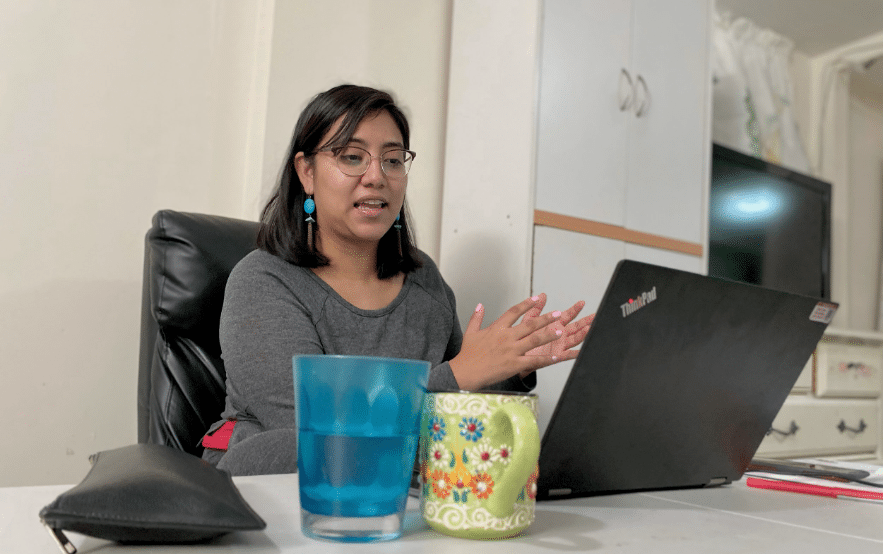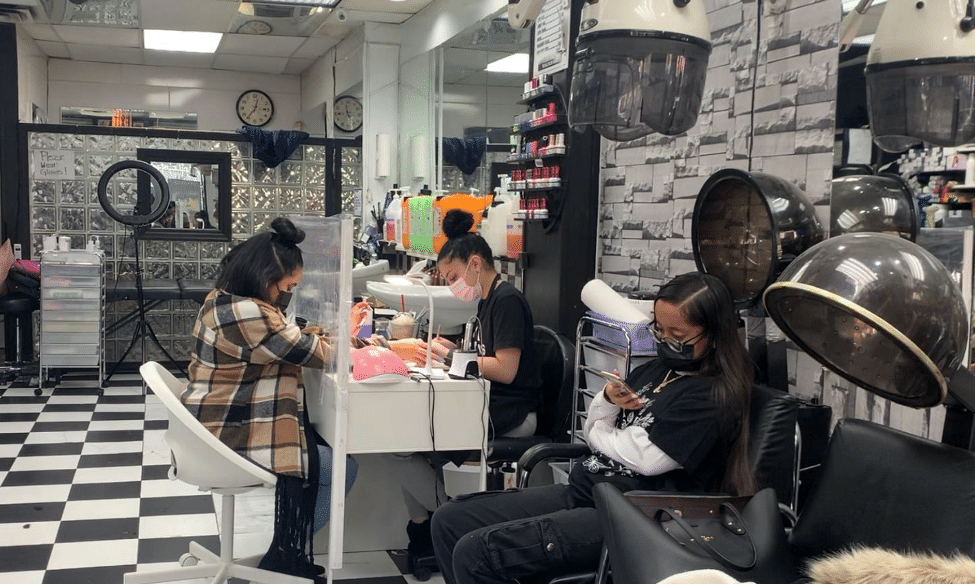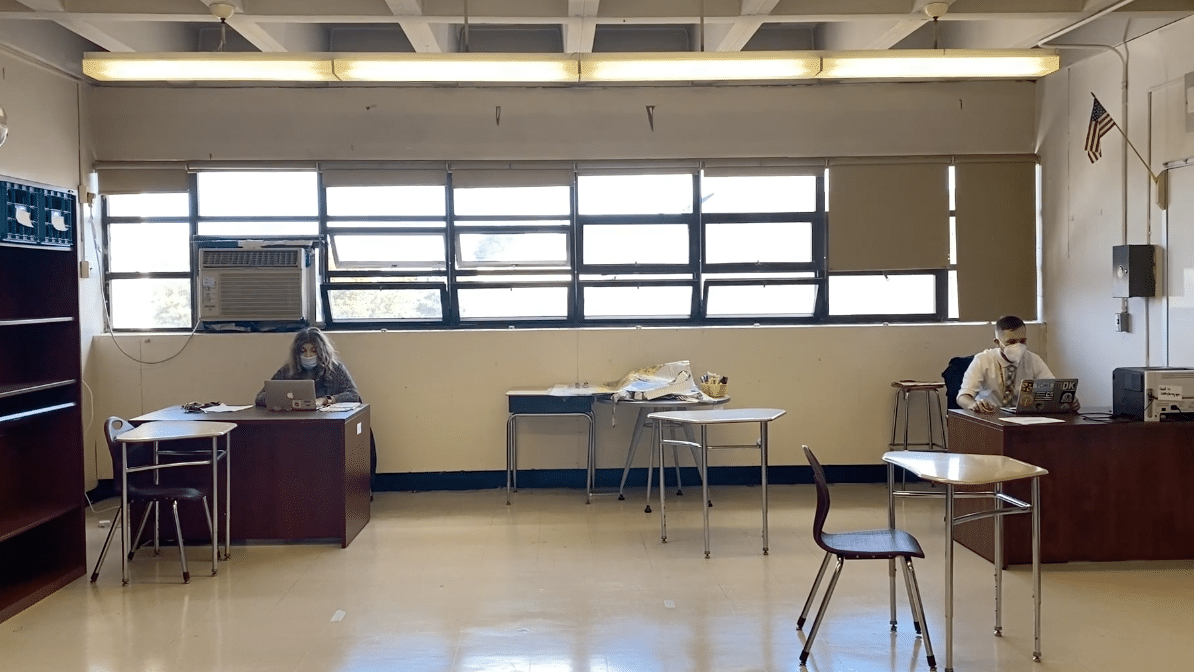The pandemic not only moved Eva Jimenez’s social work online, but she has also juggled a new position as a supervisor.
CORONAVIRUS DIARIES: A SERIES
In November 2020, students in a section of an Introduction to Journalism course at City College interviewed family members about how their lives changed during the pandemic. Eva Jiminez is Lupita Jimenez’s sister.
Eva Jimenez, a supervisor for multisystemic therapy preventive services at the New York Foundling, has worked harder than ever as the pandemic has raged on. This 150-year-old nonprofit organization provides social services and support for children, adults and families throughout the New York City area. Since the beginning of quarantine, Jimenez transitioned from her office to working remotely, making her job as a social worker difficult to manage. Jimenez’s position demands that she manage a team of therapists as they support residents struggling with the effects of COVID and the crises it has created.
Here, Jimenez openly shared her experience as a new supervisor who provides services online.
Lupita Jimenez: How did it make you feel when you first found out about coronavirus?
Eva Jimenez: In the beginning I wasn’t taking it seriously. I don’t remember the exact date, but my boyfriend had a performance with his band in March. He thought of canceling the show since everyone was talking about the virus, but he didn’t cancel the show. The next day I got very sick, and it went downhill from there.
Lupita: Why did you initially stop working?
Eva: I had a bad headache and a fever, so I took one week off. The following week my job told the staff and me that they were going to shut down and we would start to work from home. My agency also gave us ten days off if you got sick from COVID, which benefited me.
Lupita: How did you feel when your agency closed?
Eva: In the beginning I was fine with it. I was too scared to go out anyways, but after a while I did not like it at all. Since I got a promotion to be a supervisor it was difficult for me to start a new position.
Lupita: What does your normal workday look like?
Eva: There are different things that I do. A lot of it is supporting the team that I have. I run a team of four therapists and a case manager. Sometimes the therapists reach out to me if there is a crisis in a family and I have to support them through that. I also coach therapists by attending meetings and reviewing their weekly notes. On Fridays, I discuss each case and make sure each case is meeting their criteria.
Lupita: How does this differ when you work in person?
Eva: Before I got the supervisor position, I had clients so there was definitely a big shift for me. I used to work one-on-one with clients and go to their homes with more interactions. I traveled all over Queens and was just always out. Now because my position changed, a lot changed with it like learning a new position remotely.
Lupita: Do you think you would’ve learned your position faster if you worked in person?
Eva: I don’t think it’s about me. It’s about my team. My team is new. I interviewed my therapists online during quarantine—it’s something I haven’t done before. I’m interacting with them in a video call. That makes it really hard because my WIFI goes off. It’s not fair. It’s their learning and I’m teaching them, and I can’t teach as I want to.
Lupita: Did you learn anything from this experience?
Eva: I learned that therapy shouldn’t be done in a video call. It’s difficult for therapists to engage with families. I don’t think it works over the phone or through a screen. Face-to-face is important especially if you work with people.
Lupita: How has working remotely affected your relationship with your teammates?
Eva: If you’re sitting next to somebody in an office, you’re going to build some sort of relationship. You’ll be able to see how they are. It even goes from a way a person dresses. You may like their style. which could help in building friendships and who you’ll get along with.
Lupita: What advice would you give to social workers who are upcoming supervisors?
Eva: It’s nice to do things with the staff. My team and I had a virtual lunch where we sat and ate with each other, and it helped. It’s also important to check in about their self-care. Not everything is work, work, work. It’s nice to build a connection as social workers.
Series: COVID-19 DIARIES






